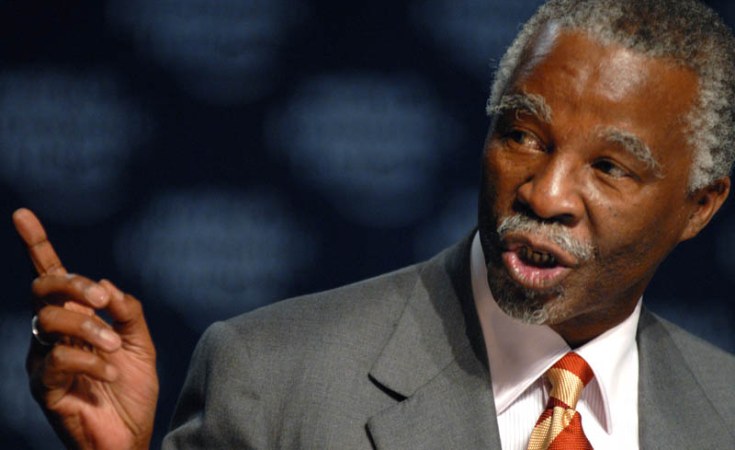Former South African President Thabo Mbeki has likened Zimbabwe's recent elections to those of 2008 whose conditions, including state sponsored violence, eventually forced a five year Government of National Unity (GNU).
Mbeki, who was key in the institution of a GNU between Mugabe and rival Morgan Tsvangirai of the MDC-T, fell short of suggesting a similar arrangement for Zimbabwe's current administration following questionable August 23 polls.
According to the Zimbabwe Electoral Commission (ZEC), President Emmerson Mnangagwa came tops with 52.6% against Citizens Coalition for Change (CCC) leader Nelson Chamisa's 44%.
Chamisa is disputing the election results which he claims were rigged, an argument that is not too far from what preliminary reports of different Election Observer Missions (EOMs) noted.
Mbeki was speaking to State broadcaster SABC on the sidelines of the United Nations General Assembly (UNGA) where Mnangagwa is meeting regional leaders in an attempt to soften their stance on Zimbabwe and ensure a watered down final report on the elections.
"You remember after the 2008 elections which were very disputed and then the second round of the presidential elections marked by a lot of violence, Zimbabwean parties agreed that the only way to react to that reality was that they form a Government of National Unity," said Mbeki.
"It was a response to what had happened during the elections. In 2008 when Zimbabweans themselves could see that elections had not produced a winner they got together for five years."
In 2008 Mugabe unleashed a reign of terror on opposition supporters mainly in rural areas after suffering his first ever loss in presidential elections; recording 43.2% against Tsvangirai's 47.9%.
The results, which took a month to announce, were disputed and eventually led to a runoff that Tsvangirai pulled out of. Thousands of his supporters had either been killed, tortured, or disappeared.
Added Mbeki: "The leaders of Zimbabwe must act as leaders, what is in the best interest of Zimbabwe? That is how I would have approached it."
Mnangagwa faces similar pressure to solve Zimbabwe's governance crisis.
Poorly managed elections, commandeering of State Security agencies against the opposition, arbitrary arrests, torture and extra-judicial killings have tainted hopes of the election getting international acknowledgment.
Already regional body SADC, the UK, European Union (EU), AU and Carter Center have indicated it fell short of regional and international standards.


